FALLING IN LOVE WITH MOTHER EARTH
'We and the Earth are One'- Thich Nhat Hanh
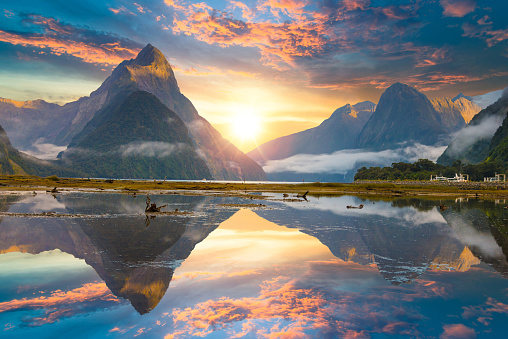
Milford Sound, New Zealand, one of the world's most stunning natural wonder.-Photo: istock
A recent authoritative report has estimated that the world spends 6,000 times more on environmentally harmful subsidies than on carbon offsets. Indeed, the global value of governmental support for the most polluting industries—fossil fuels, agriculture, forestry, water, construction, transport, and marine capture fisheries—is estimated to be over $1.8 trillion per year.
This selfish act of Fake Economics, in pursuit of equally Fake Greenwashing, is having a tragic impact on the lives, health, wellbeing, as well as the rights of people and mother earth in many parts of the world, in countless countries and regions.
Children, men and women, young and old are digging and dying to satisfy our appetite for ‘Green’ devices and electric cars. The entire web of life is in pain and agony. They are calling us: “We are dying. There is no food. Our fish are dead. Our trees are dead. We can’t take it any longer.”
We must not remain desensitised to the tragedy that is unfolding everywhere around us as we go on ‘GREENING’.
This is the call of our moral compass. Our greening project must not be at the expense of human and mother nature abuse and degradation. We must respect and value the entire web of life in all we do. For too long now detaching nature from economics has been ‘Burning the Library of Life’. This false economics of maximising value creation for the shareholders, at the expense of everything else must be thrown into the dustbin of history, if we are truthful to the idea and ideals of our dream: living a greener way of life, where individuals can live free and prosperous lives, where mother earth is valued and respected, and where societies can organise for the common good. Carpe diem!
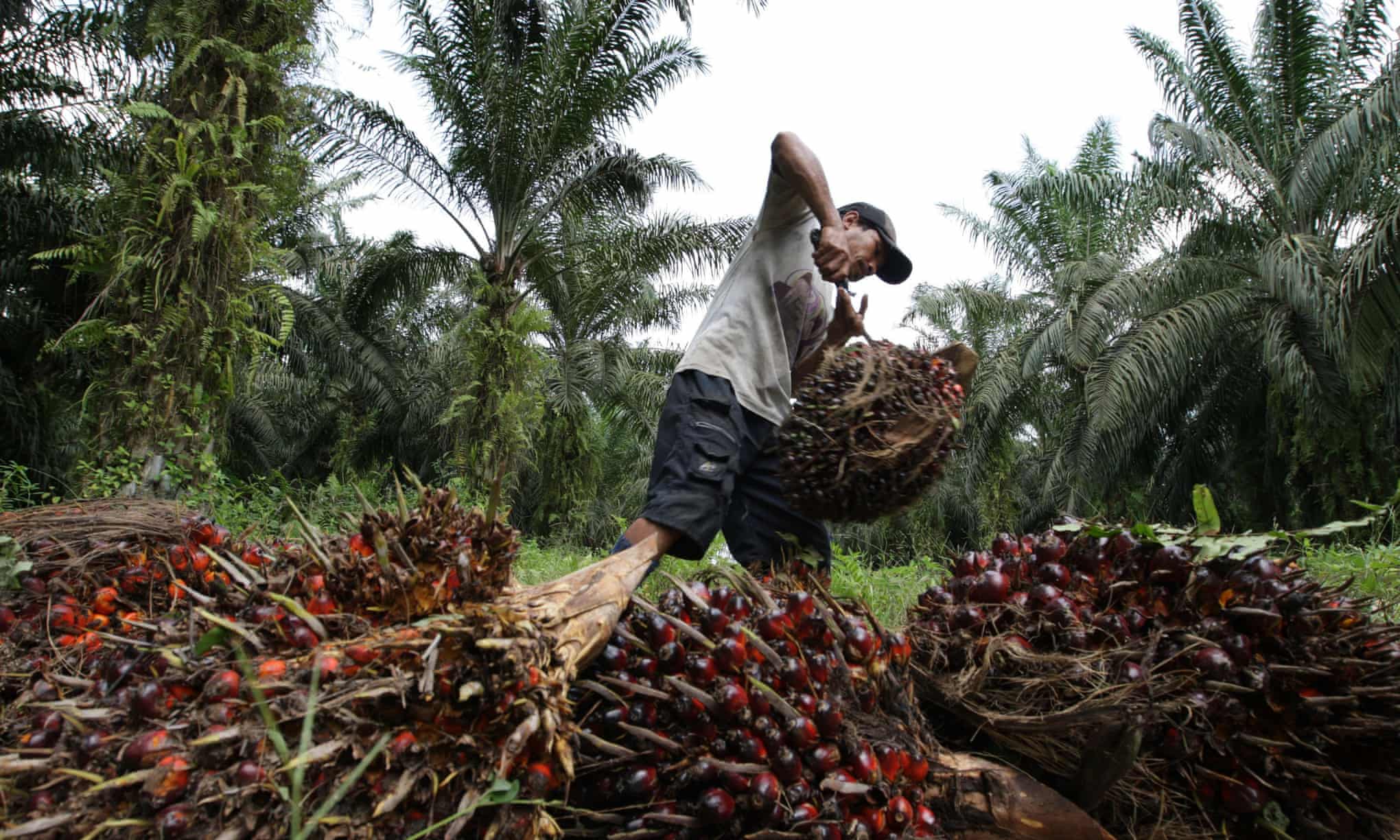
‘A plantation worker harvests palm oil fruits in Riau province on Sumatra Island, Indonesia.
The province has lost more than 60% of its forest.’ Photo: Dimas Ardian/Getty/The Guardian
Harmful subsidies: why is the world still funding the destruction of nature?
History Will Judge the Complicit
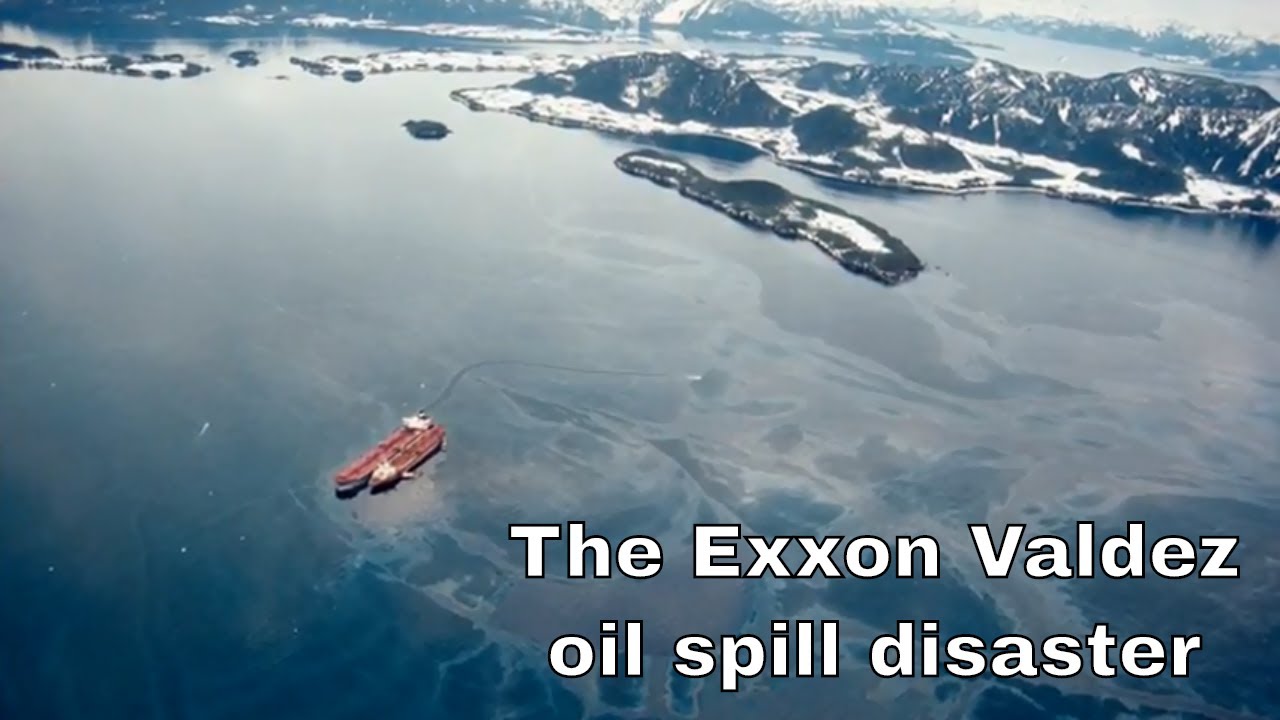
‘On 24 March, 1989 an oil tanker ran aground in the pristine waters of Prince William Sound in the Gulf of Alaska, dumping 11 million gallons of crude oil. The spillage affected 11,000 square miles of sea, killing thousands of marine mammals and seabirds, and had a devastating impact across the 1,300-mile of shoreline. Twenty-five years on it remains one of the worst environmental disasters of all time.’- Exxon Valdez oil spill – in pictures
30 years after oil spill, he will never forget or forgive
‘Canada’s Tar Sands: Destruction So Vast and Deep It Challenges the Existence of Land and People.’
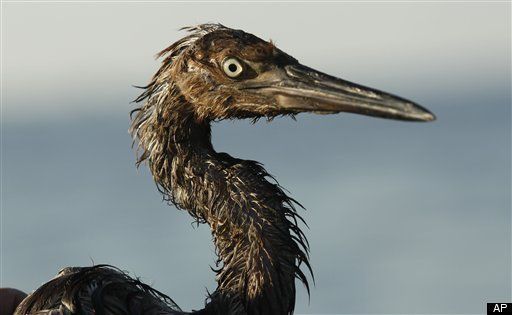
'Birds Die Slow Death in Tar Sands Sludge'
Mining in Canada: No native spirituality, No children dancing, No prayers
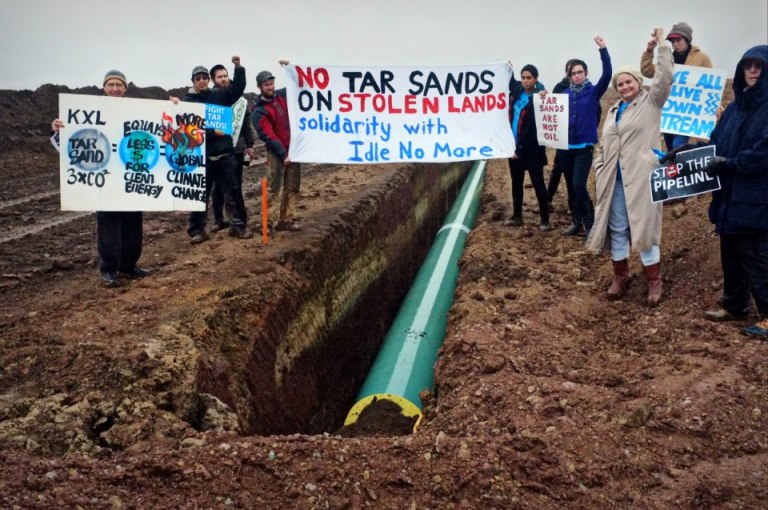
Photo:niagaraatlarge.com
Colonialism can’t be forgotten – it’s still destroying peoples and our planet
Blighted Oil Delta: Shell and the Death of Mother Nature in Nigeria
Pollution suffered by the Ogale people of Ogoniland in the Niger Delta
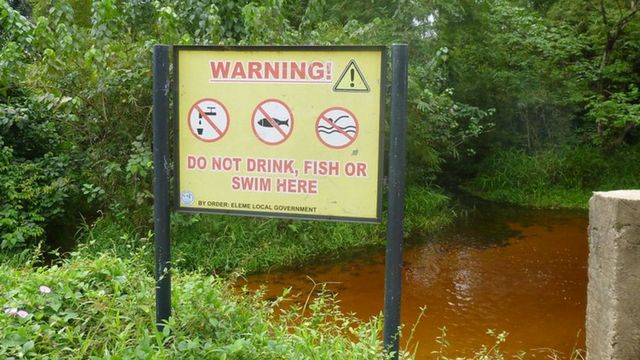
Photo: Leigh Day/The BBC
“We are dying. There is no food. Our fish are dead. Our trees are dead. We can’t take it any longer.”
Oil spills in Nigeria: The true price of crude oil | Guardian Investigations
Counting the Cost: Oil Spill Destroys Lives, and Livelihoods in Nigeria’s Delta State
How big oil corporations are destroying life in Nigeria's Ogoniland
Our device-driven lives depend more than ever on tragedy in countries like
the Democratic Republic of Congo or Indonesia
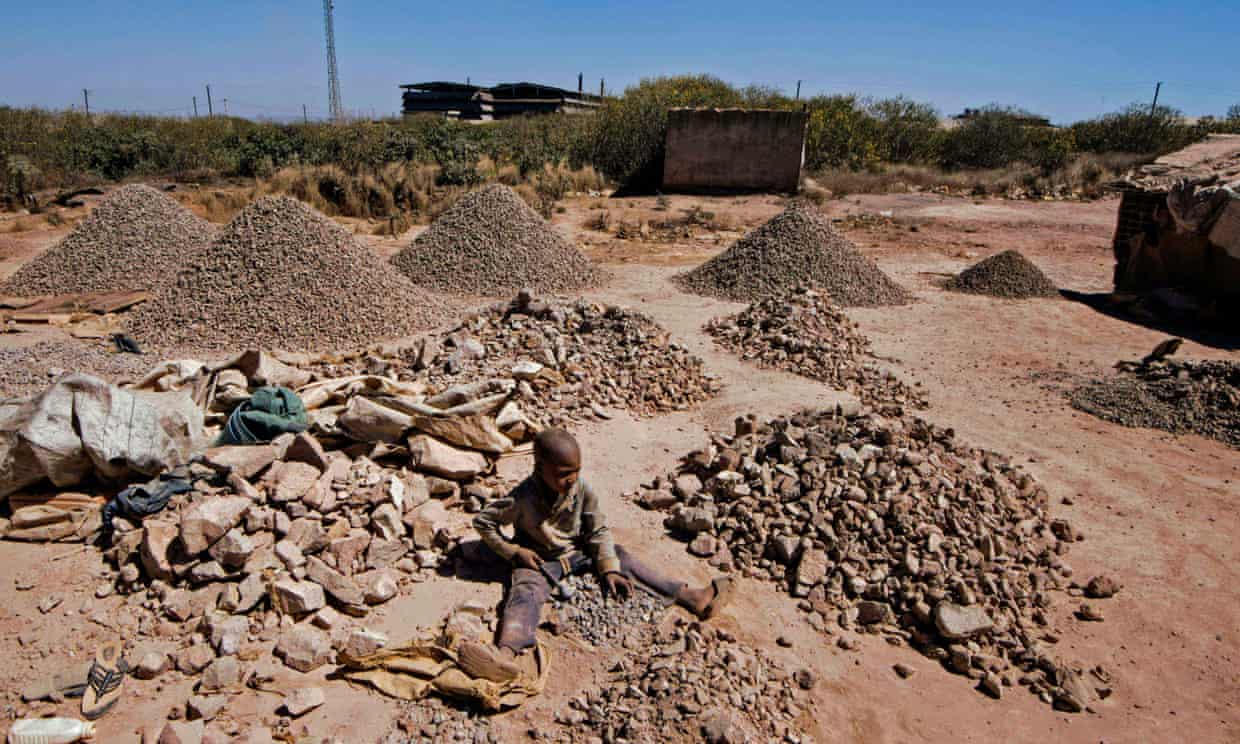
A child breaks rocks at a cobalt pit in the DRC. Photo: Junior Kannah/Getty/The Guardian
Hunt for the ‘Blood Diamond of Batteries’ Impedes Green Energy Push
I saw the unbearable grief inflicted on families by cobalt mining. I pray for change
The Dark Side of Congo’s Cobalt Rush
Congolese children, men and women, young and old digging and dying
to satisfy our appetite for ‘Green’ devices
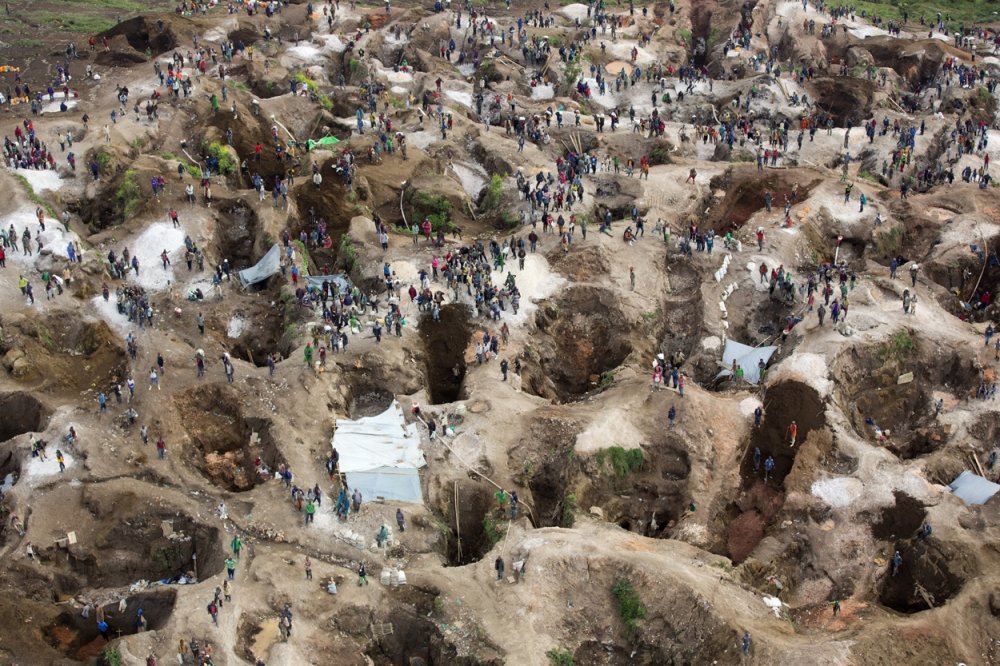
‘Luwowo Coltan mine near Rubaya, North Kivu [DRC] on the 18th of March 2014.’-
For photo credit see:The DRC Mining Industry: Child Labor and Formalization of Small-Scale Mining
‘We are afraid’: Erin Brockovich pollutant linked to global electric car boom
Investigation uncovers evidence of contaminated air and water from one of Indonesia’s largest nickel mines
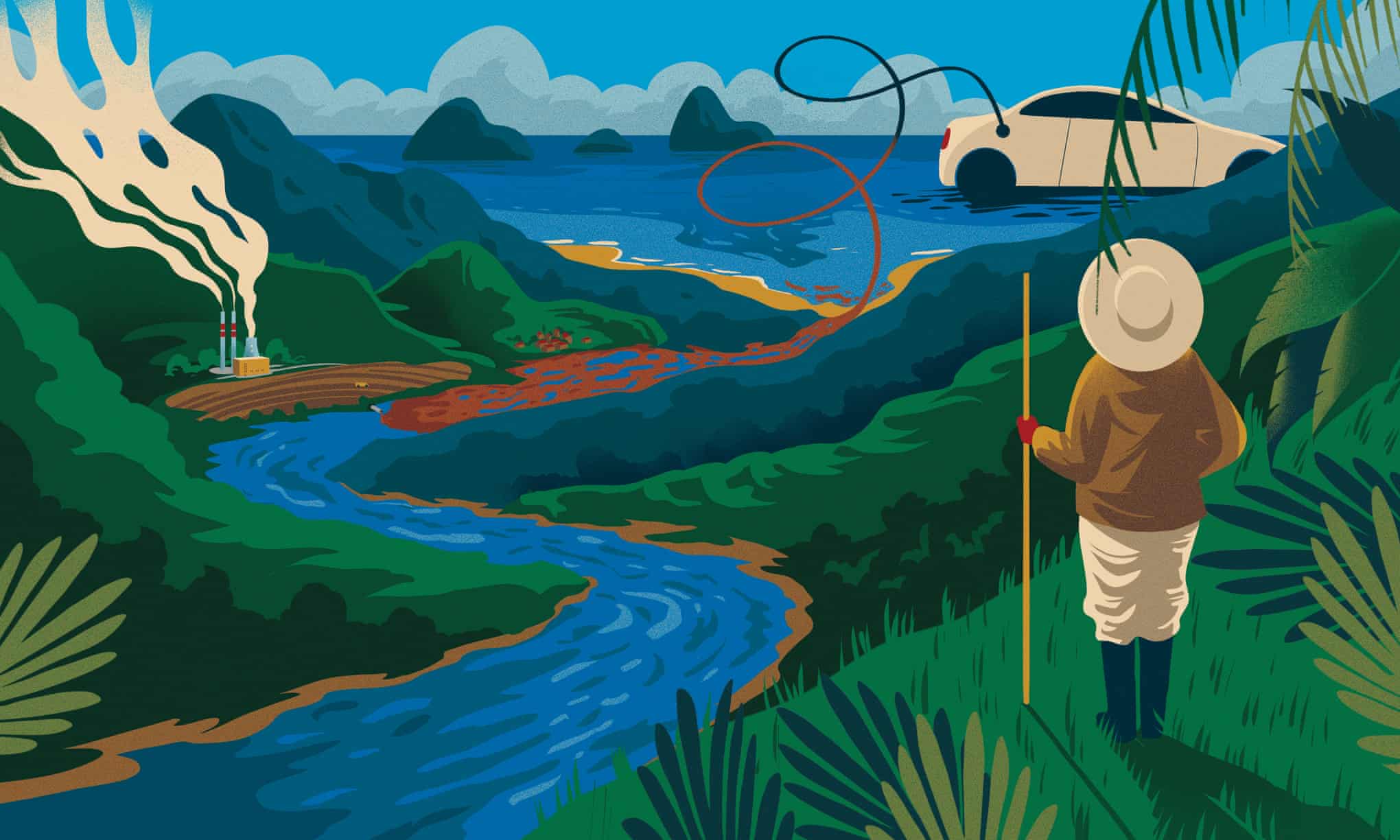
Illustration: Pep Boatella/The Guardian
‘We are afraid’: Erin Brockovich pollutant linked to global electric car boom
See also: Battery life A series investigating the human rights implications of the electric car supply chain
The Lobbyists, Subsidies and the Corruption of the Energy Sector: The Story of our Tainted Democracies
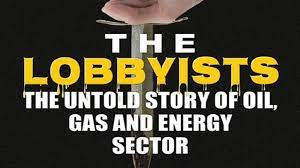
Photo: The Lobbyists
‘The energy sector is a prime target for, and source of corruption, in part because of the time-sensitive nature of energy resources, the possibilities of generating considerable economic rents from energy extraction, transformation and use, as well as the need for large capital investments and a central role of government agencies to oversee virtually all aspects of the energy sector – whether privatized or not. The forms of corruption depend on features of the supply chain of specific energy sources, the significance of these sources in the local and national economy, the sociopolitical and institutional context within which extraction, transformation and use occur, the number of individuals participating in decision making, and the cultural environment within which decisions are made. A lack of transparency of decisions and accounting methods, as well as a lack of effectiveness of legal systems may help hide and sanction abuse of power by decision makers. Efforts to reduce corruption need to simultaneously consider each of these issues in order to be effective.’-Corruption and the Energy Sector
Lobbying, Corruption and Political Influence
Lobbying, corruption and climate finance: The stakes for international development
LIFTING THE LID ON LOBBYING: THE HIDDEN EXERCISE OF POWER AND INFLUENCE IN THE UK
Oil and gas firms have unlisted links to Westminster
UK universities took £89m from oil firms in last four years
Yes, Fossil Fuel Subsidies Are Real, Destructive And Protected By Lobbying
Clean or dirty energy: evidence of corruption in the renewable energy sector
HOW CORRUPTION WEAKENS DEMOCRACY
N.B. And now, we must never ever forget that, our collective suffering, pain, fear and loss, caused by the global pandemic of COVID-19 has, hopefully and finally, exposed us to the truth: Right-wing ideology of killer neoliberalism with “ selfishness” and "individualism" at its core, plundering and exploting the world and our web of life, is nothing but an emperor with no clothes, a load of garbage, so to say.
The time is now to wake up and see the truth. The fallout from the pandemic is an urgent call to strengthen our humanity and our interdependence: I Am Because We Are.
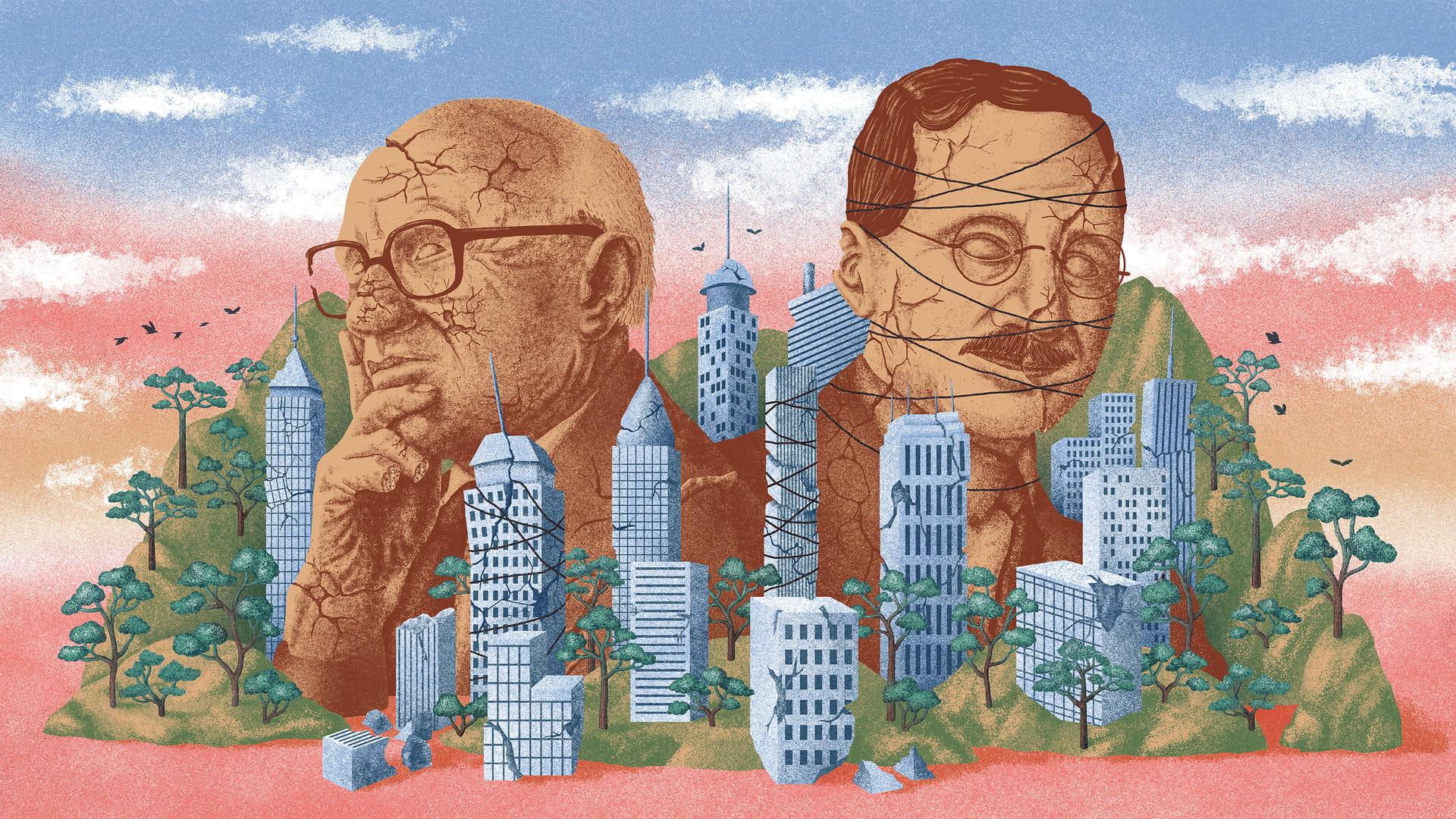
Illustration by Ralph Zabel, via The Correspondent
The Coronavirus outbreak brings up broad moral and spiritual questions
In an era of neoliberal ideology of individualism and selfishness, COVID-19 has made us realise how badly we depend on real life social interaction, within our communities, and with family, friends and fellow citizens, sharing love, beauty, joy and laughter, things that our current monetised global leaders, as it seems, have never heard of!
The Pandemic and the Global Moral and Spiritual Bankruptcy
How a Virus Exposed the Myth of Rugged Individualism
Humans evolved to be interdependent, not self-sufficient
By ROBIN G. NELSON/ Via Scientific American
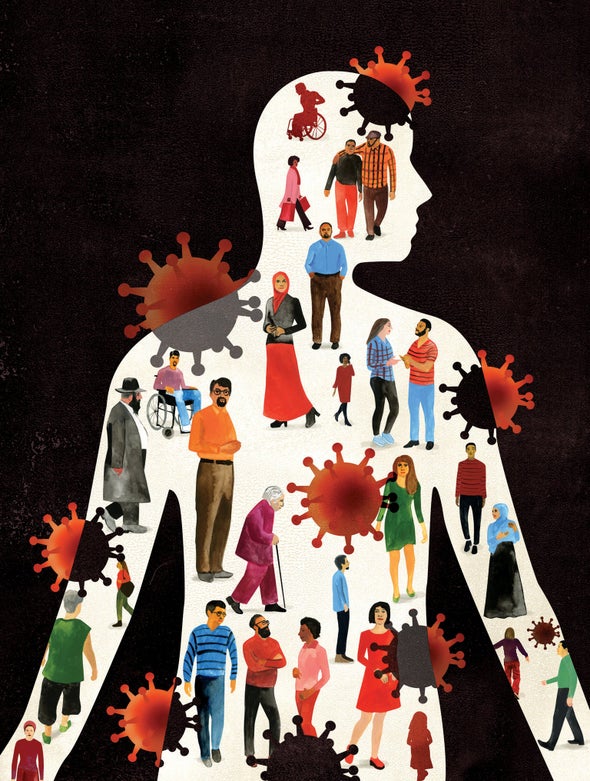
Photo Credit: Ellen Weinstein/ Via Scientific American
‘For countless Americans, there was a dull but persistent pain to pre -pandemic life: high-priced housing, nearly inaccessible health care, under- resourced schools, wage stagnation and systemic inequality. It was a familiar ache, a kind of chronic hurt that people learned to live with simply because they had no other choice. Faced with threadbare safety nets and a cultural ethos championing nationalist myths of self-sufficiency, many people did what humans have always done in times of need: they sought emotional comfort and material aid from their family and friends. But when COVID-19 hit, relying on our immediate networks was not sufficient. Americans are gaslit into thinking that they are immeasurably strong, impervious to the challenges people in other countries face. In reality, our social and economic support systems are weak, and many people are made vulnerable by nearly any change in their capacity to earn a living. The fallout from the pandemic is an urgent call to strengthen our aid systems.
Anthropologists have long recognized that exceptionally high degrees of sociality, cooperation and communal care are hallmarks of humankind, traits that separate us from our closest living relatives, the chimpanzees and bonobos. This interdependence has been key to our success as a species. Viewed this way, we humans have an evolutionary mandate to be generous and take care of one another. But unlike early humans, who lived in comparatively small groups, we cannot just rely on our immediate family and friends for support. We must invest in national policies of communal care—policies that facilitate access to resources for people who need help—to a degree that is commensurate with the size and complexity of today’s globalised societies.
In a sense, the entanglement of our everyday lives made us all the more vulnerable to an airborne virus that demanded social isolation, blowing up the facade of normalcy in the spring of 2020. The new COVID normal, with its mask wearing, social distancing, lockdowns and closed schools, compelled us to abandon our most basic instincts and turn away from our closest friends and family. It rents the social fabric on which we all rely.
Infectious diseases present an unusual challenge: to combat them effectively, we must render aid appropriately and consistently at scale. This pandemic exposed the fragility and faults in each layer of our lives—from our innermost circle of family and friends to the nation state at the periphery—and the differential risk experienced by any individual’s core community. Communities that were already heavily invested in social safety nets with measures such as paid sick leave were able to lower COVID rates. Those invested in the ideology of self-sufficiency and individualism prolonged suffering and loss of life.
New Zealand (Aotearoa in Māori), a country with a long history of reckoning with its colonial past and building community, has been a standout success story in the pandemic. The government there countered COVID with nationwide stay-at-home orders, border controls, hygiene campaigns, accessible testing and contact tracing. The results were dramatic: 18 months into the pandemic, the country had seen only 27 COVID deaths. By late 2021, 90 percent of eligible citizens were fully vaccinated. Although new variants have been challenging these successes, the government remains deeply committed to care.
Similarly, Taiwan defied predictions that it would struggle with COVID infections like its neighbours in China by instituting a 14-day isolation policy for travellers entering the country, stepping up mask production, increasing border controls and deputising quarantine officers who could help isolated citizens. By March 2021 there had been only 10 COVID deaths in a country of nearly 24 million people. Taiwan has fought each new wave of the pandemic with these tactics. Although we may call on our inner circle most frequently during our times of need, ultimately we must rely on local and national officials on the periphery of our lives to be exquisitely human—as the leaders of New Zealand and Taiwan have been—when they develop and enact health policies.
In the U.S., government support was inconsistent, and citizens struggled to work together to keep the virus at bay. The roots of these problems run deep. Since this country’s inception, the dominant ideologies here have encouraged not only individualism but also the dehumanisation of certain groups, as evidenced by the enslavement of Black people and the displacement of Indigenous communities from their ancestral lands. This dehumanisation continues today in the form of the bootstrap narrative—the myth that anyone can prosper if only they work hard enough—and in efforts to weaken relief programs for people who need help. As a result, even though we now know how the virus spreads and causes disease and we have effective vaccines against it, the death toll from COVID is higher in the U.S. than anywhere else.
There have been some success stories in the U.S.—they can be found in groups that have a fundamentally different ideological relationship to community interdependence. The Navajo Nation, which early on saw some of the highest rates of COVID-related illness and death, ran its own vaccine education campaigns and implemented in-house vaccine-distribution policies. It achieved far higher vaccination rates on its reservations than surrounding areas did. Tribal values that prioritise the group over the individual helped motivate members to get their shots. Unfortunately, in late 2021 the virus surged among the Navajo again, perhaps because of low vaccination rates in neighbouring areas.
A microbe revealed the lie of rugged individualism. We are not self-sufficient and independent; we never have been. Our fates are bound together. Taking care of others is taking care of ourselves. With the arrival of the highly infectious Omicron variant, we are paying the price for not having developed strong policies early on and stuck to them. But that does not mean we should just give up the fight. Instead we need to redouble our efforts to provide care and resources to vulnerable community members. The emergence of each new COVID variant is an opportunity to reflect on what worked and what did not with the last one, whether locally or on the other side of the world. Committing ourselves to upholding our evolutionary mandate to help one another—not just the people we see every day but everyone, everywhere—is the only thing that will save us.’- Read the original article HERE
Ideas to change the world for a brighter and better future
Healing the world as if the web of life mattered
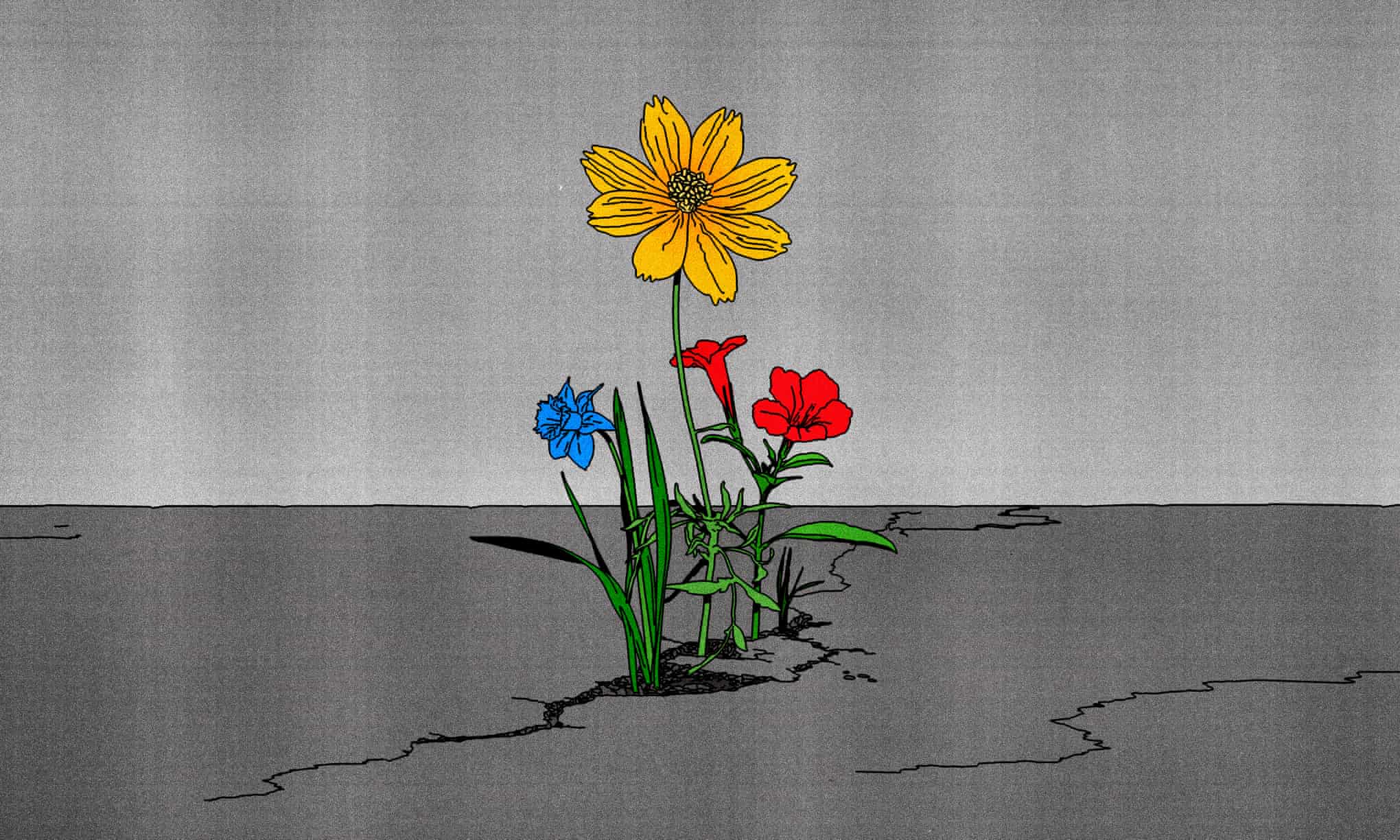
Illustration: Álvaro Bernis/The Guardian
Embracing 21st century mindset: Collaboration, Cooperation and the Common Good
Look All Around You and Pursue the Common Good
Living the Dream: Pursuing the Common Good
Why Love, Trust, Respect and Gratitude Trumps Economics
A Businessman and an Economist in Dialogue for the Common Good: Dubai 2004
What might an Economy for the Common Good look like?
Rediscovering the art of healing ourselves and all that is around us
Are you physically and emotionally drained? I know of a good solution!
Healing the world as if the web of life mattered: In Praise of Ancient Wisdom
Ten Love Letters to the Earth: “Walk as if you are kissing the earth with your feet”
'Nature and Me'-Part I: Educating the Heart and the Soul of Children to Build a Better World
Detaching Nature from Economics is ‘Burning the Library of Life’
Desperately seeking Sophia: The Wisdom of Nature
Land As Our Teacher: Rhythms of Nature Ushering in a Better World
Towards COP26: Education to Heal the World
Crisis after Crisis: Ten Steps to Save the World
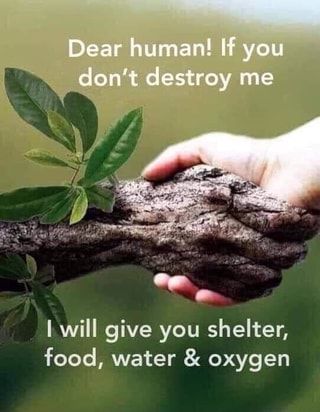
Photo: Via Pinterest
Prayer to Mother Earth
'We return thanks to our mother,
the earth, which sustains us.
We return thanks to the rivers and streams,
which supply us with water.
We return thanks to all herbs,
which furnish medicines
for the cure of our diseases.
We return thanks to the corn,
and to her sisters, the beans and squash,
which give us life.
We return thanks to the bushes and trees,
which provide us with fruit.
We return thanks to the wind,
which, moving the air,
has banished diseases.
We return thanks to the moon and the stars,
which have given us their light
when the sun was gone.
We return thanks to our grandfather He-no,
who has given to us his rain.
We return thanks to the sun,
that he has looked upon the earth
with a beneficent eye.
Lastly, we return thanks to the Great Spirit.
in whom is embodied all goodness.
and who directs all things,
for the good of his children.'- Prayer to Mother Earth in Powerful Prayers for Everyday Living by Mark Linden O'Meara
